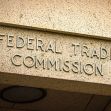The Federal Trade Commission (FTC) recently announced an enforcement action taken against the perpetrators of a credit card debt relief scam. The agency has put a temporary stop to the scheme, which they allege took millions from consumers by falsely claiming the victims could reduce or eliminate their credit card debts.
The FTC alleges that Sean Austin, John Steven Huffman, and John Preston Thompson and their affiliated companies, perpetrated a plot to bilk millions from unwary debtors. In telemarketing calls to consumers, the defendants promised to substantially reduce or eliminate the consumers’ credit card debt in 12 to 18 months. They would tell consumers a number of lies to convince them that their debt could be eliminated, such as claiming the debts were invalid, subject to a debt forgiveness program, or could not lawfully be collected. At times, they claimed to be affiliated with a bank, credit card company, or credit reporting agency.
As part of the scheme, the defendants would tell the consumers to stop paying their debts or communicating with their credit card companies. The defendants would then request exorbitant upfront fees, often in the thousands. The defendants claimed that the consumers would never have to actually pay the fee once the debt was eliminated. Victims were also charged monthly fees for “credit monitoring” services.
Ultimately, the consumers would be left in a worse position than before, still owing thousands on their credit card bills and often thousands more. Many were subsequently sued by their credit card companies. Victims of the scheme, many of whom are older and/or financially distressed, have suffered significant long-term financial harm and near-irreparable damage to their credit.
The FTC filed a complaint seeking temporary and permanent injunctive relief, as well as monetary damages. A federal court granted the agency’s request for a temporary injunction, putting a stop to the scheme for the time being. Unfortunately, this is far from the only debt relief scam out there.
Fraudulent debt relief and debt settlement schemes have become more common in recent years. Scammers target consumers with high debts, low credit scores, or indicators of limited financial literacy--such as elderly individuals with diminished capacity. These schemes violate several laws and regulations, including prohibitions on telemarketing, false advertising, and falsely claiming to represent a financial institution.
Consumers harmed by debt relief schemes have many options for seeking justice and compensation. State and federal false advertising laws allow consumers to seek restitution for money they were wrongly induced to spend. Consumers can also allege financial fraud under a number of different statutes, or unfair debt collection practices per the Fair Debt Collection Practices Act.
Defrauded consumers can choose whether to contact the FTC, the Consumer Fraud Protection Bureau, or a similar state agency, or to pursue their own civil claims in court. In actions based on fraud, aggrieved plaintiffs can often collect not only restitution for their actual damages but also additional punitive damages and attorney fees. More enforcement actions, hefty civil awards, and possible criminal referrals would go a long way toward limiting a perpetrator’s incentive to carry out such predatory schemes.






